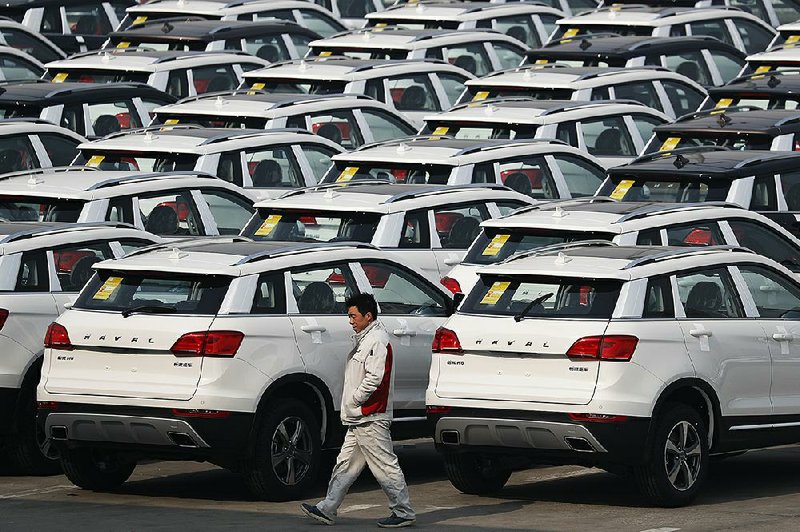BEIJING -- Chinese SUV maker Great Wall Motors is considering making a bid to buy Fiat Chrysler's Jeep unit, spokesmen for the company said Monday.
Great Wall has yet to formally declare its interest in Jeep, but a possible acquisition would be in line with Chairman Wei Jianjun's goal, announced in February, of becoming the top specialty SUV producer by 2020.
Great Wall "has this intention," said Zhao Lijia, the spokesman for the company's Haval SUV brand, when asked about a report by Automotive News that the Chinese automaker wants to buy Jeep. An employee of the press office for the company headquarters, who would give only his surname, Zhang, said, "Yes, we are interested in Jeep."
Zhao and Zhang said they had no other details when asked about a possible price. Zhao said it may take some time to assemble a formal bid.
Fiat Chrysler Chief Executive Officer Sergio Marchionne has said the company is for sale and cannot compete globally without a tie-up to a bigger partner because of the high costs of developing and marketing vehicles.
In a statement Monday, Fiat Chrysler Automobiles NV said it had not been approached by Great Wall.
Marchionne said in April that Jeep and Chrysler's Ram truck brand are strong enough to stand alone. The company spun off its Ferrari brand in 2015 into a separate business.
Chinese companies that make products such as automobiles and robots are spending billions of dollars to acquire brands and technology to strengthen their competitive position at home and speed their development.
Great Wall Motors Ltd., based in Baoding, southwest of Beijing, is one of a series of independent Chinese automakers to have grown up alongside state-owned giants such as Shanghai Automotive Industries.
If it goes ahead with a Jeep bid, Great Wall could become the second Chinese automaker, after Geely Holding Group, to expand onto the global stage by acquiring an established foreign brand.
Geely bought Sweden's Volvo Cars from Ford Motor Co. in 2010 and has created a third brand, Lynk & Co., as a partnership between Volvo and Geely's Chinese brand.
In June, Geely bought a 49.9 percent stake in Malaysian automaker Proton and a controlling interest in British sports car maker Lotus.
In 2011, a state-owned Chinese automaker, Dongfeng Motor Group, bought 14 percent of France's PSA Peugeot Citroen, Europe's second-largest automaker.
Great Wall sold just under 1.1 million SUVs last year, behind Jeep's 1.4 million. Its revenue of $14.4 billion was a fraction of Fiat Chrysler Automobiles' global total of $118 billion, but its $1.5 billion profit was almost equal to the Italian-U.S. automaker's $1.8 billion.
Great Wall also can draw on strong demand in China, the biggest auto market by units sold. Total SUV sales in the country rose 16.8 percent over a year earlier to 4.5 million in the six months ending in June.
Great Wall emerged from a collective founded in the 1980s to repair and customize vehicles. Wei, then 26, took control in 1990 and shifted into auto manufacturing. The company launched its first sedan in 1993 but narrowed its focus a decade ago to SUVs.
Wei said in February that the company's "globalization strategy" included improving technology to meet U.S. safety standards. But he gave no indication when Haval might export to the United States or major European markets such as Germany.
Great Wall shares rose 1.6 percent in Hong Kong, while Fiat Chrysler Automobiles NV gained 2.8 percent in Milan.
Information for this article was contributed by Fu Ting and Colleen Barry of The Associated Press.
Business on 08/22/2017
